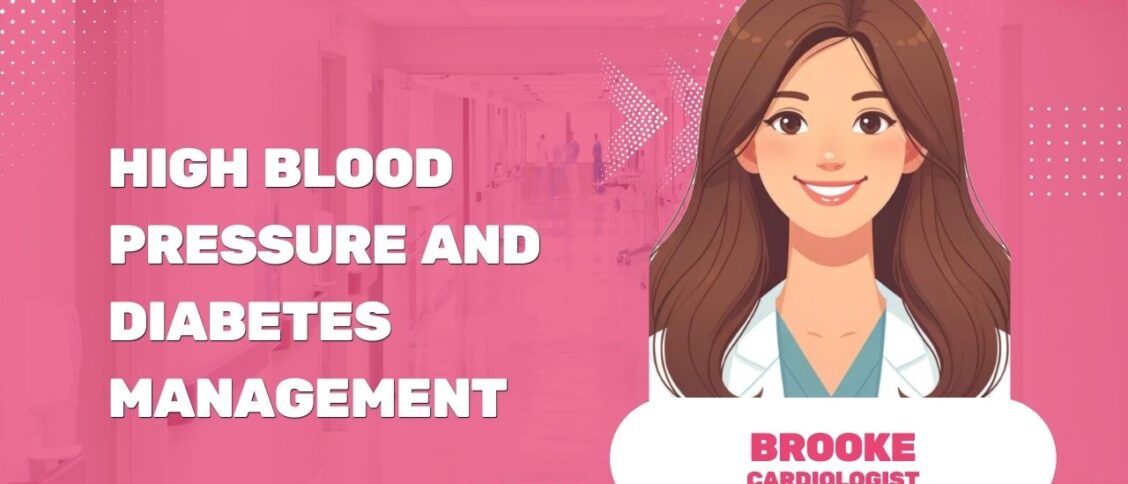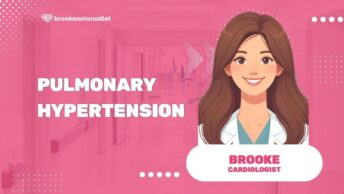When you’re juggling the challenges of managing diabetes, it’s easy to overlook another serious health risk that often goes hand-in-hand with high blood sugar: high blood pressure. These two conditions combined can pack a powerful punch, increasing your risk of heart disease and stroke.
Understanding Blood Pressure and Diabetes
Within our bodies, blood pressure plays a key role. Think of it like the vigor your heart exerts while pumping blood throughout your system. Usually we see blood pressure recorded as one figure over another. The top number’s the systolic pressure. This shows the force at which your heart contracts, pushing blood to the body. The bottom number’s the diastolic pressure. It indicates the pressure in the arteries when the heart rests between beats.
A variety of blood pressure monitors are available to keep an eye on your readings. Regularly checking your blood pressure is instrumental in the early detection of health complications. It’s also crucial to know what constitutes a healthy range for your blood pressure, as it helps guide treatment strategies and health goals.
A blood pressure chart helps to determine whether an individual’s blood pressure falls within the healthy range.
| Category | Systolic BP | Diastolic BP |
|---|---|---|
| Normal | Less than 120 | Less than 80 |
| Elevated | 120-129 | Less than 80 |
| High BP (Hypertension) Stage 1 | 130-139 | 80-89 |
| High BP (Hypertension) Stage 2 | 140 or higher | 90 or higher |
| Hypertensive Crisis | Higher than 180 | Higher than 120 |
Let’s move on to the relationship between high blood pressure and diabetes. High blood pressure isn’t just a condition on its own — in fact, it’s typically associated with other health complications, like diabetes.
Diabetes affects the way the body utilizes glucose. With Type 2 diabetes, the body either resists the effects of insulin — a hormone regulating the movement of sugar into cells — or it just doesn’t produce enough insulin to sustain normal glucose levels. Diabetes generally results in higher-than-normal blood sugar levels that can cause damage to your organs, including the blood vessels, nerves, eyes, and kidneys.
If you have high blood pressure and diabetes, you’re twice as likely to develop heart disease than someone without these conditions. It’s believed that about 75 of cardiovascular diseases in diabetes are due to high blood pressure, so the overlap between these conditions cannot be overstated.
The Relationship Between High Blood Pressure and Diabetes
High blood pressure and diabetes often appear as unwelcome companions. How they impact each other and why they frequently hang out together is worth understanding.
How Does High Blood Pressure Affect Diabetes?
High blood pressure, also known as hypertension, balks at the healthy circulation of our lifeline, blood. In numbers, if you’re looking at readings consistently over the 120/80 mm Hg mark, that’s high blood pressure territory.
This unwavering force against your artery walls is no friend to a diabetic. It accelerates the damage diabetes already does to your blood vessels, increasing risks for:
- Heart disease
- Stroke
Monitoring your pressure with a blood pressure monitor at home lowers risk. Plus, it gives a clear picture of your condition between healthcare visits.
How Does Diabetes Affect Blood Pressure?
Diabetes, for its part, interferes with the body’s ability to utilize glucose. This interference causes damage to various organs, with blood vessels bearing the brunt of it. Unmanaged glucose levels lead to:
- Arterial damage
- Narrowing and hardening of the blood vessels (atherosclerosis)
Add to this the fact that insulin resistance often teams up with other conditions like obesity and you’ve got a ticket to high blood pressure town.
A healthy diet, regular check-ups with your healthcare provider, consistent monitoring using a blood pressure monitor, and physical activity can do wonders in managing both diabetes and blood pressure. It’s not only about lowering blood pressure, but also taking control of your overall health.
Remember, gaining knowledge is your first step to staying healthy. The next step is putting that knowledge into action. Keep a sharp eye on your numbers, maintain a dialogue with your healthcare provider, and don’t let high blood pressure and diabetes catch you off guard.
Managing Blood Pressure for Diabetic Individuals
It’s crucial to know that managing your blood pressure isn’t only about taking prescribed medication on time. It’s a lot more expansive, encompassing lifestyle changes, keeping a strict check on your blood pressure levels, and being proactive about overall health.
Lifestyle Changes to Lower Blood Pressure
I cannot stress this enough – a balanced, low-sodium diet enriched with fruits, vegetables, lean meats, and whole grains can greatly reduce your blood pressure levels. Let’s spare a moment to glance at some noteworthy lifestyle modifications:
- Switching to a low-fat, low-sodium diet
- Prioritizing regular exercise in your routine
- Minimizing alcohol and caffeine intake
- Avoiding tobacco and if possible, any form of smoking
Remember, a consistent, dedicated approach to these changes can significantly lead to lowering blood pressure and maintaining it within a healthy range.
Medications for Controlling Blood Pressure
Sometimes, lifestyle changes alone may not bring about the desired effect. That’s when blood pressure medications come into play. Doctors prescribe these to reduce high blood pressure, and aid in the prevention of heart disease and strokes.
Moreover, choosing the correct blood pressure medication for diabetic individuals is key. An ideal choice of drug not only helps control blood pressure but may also have added benefits like protecting the heart and kidneys. It’s advisable to consult with your healthcare provider to choose the medication that is best suited for your condition.
Monitoring Blood Pressure Levels Regularly
With the advent of technology, monitoring blood pressure has become as easy as a breeze. There are numerous blood pressure monitors available in the market, enabling one to keep a regular check on their blood pressure. As someone dealing with diabetes, it’s essential to ensure your blood pressure stays within the recommended blood pressure ranges.
Consistently staying within the ‘normal’ range can significantly reduce your risk of vascular complications. Remember, keeping an eye on your blood pressure is not just checking blood pressure; it’s about being attentive to your overall health, one simple step at a time.
The Impact of High Blood Pressure on Diabetic Complications
As we delve deeper into the link between high blood pressure and diabetes, it’s crucial to recognize the implications these conditions might pose when they work in tandem. Let’s unfold how high blood pressure may impact diabetic complications.
Increased Risk of Heart Disease
Blood pressure ranges significantly affect the health of a diabetic person, especially when it comes to heart diseases. As per American Heart Association.
Diabetic individuals at elevated or high blood pressure ranges are at a higher risk. The condition tends to cause harder arteries which increases the chances of:
- Heart attack
- Heart failure
- Angina (chest pain)
Apart from checking blood pressure regularly, diabetic individuals need to be proactive in managing their conditions. This means lowering blood pressure through a balanced low-sodium diet, regular exercise, cutting tobacco use, and maintaining moderate alcohol consumption.
In severe scenarios, medication becomes essential. It’s also vital for them to have a reliable blood pressure monitor at home to keep track of their numbers.
Effects on Kidney Function
High blood pressure doesn’t just affect heart health. It takes a big toll on the kidneys, too. For diabetic individuals, the double hit of diabetes and hypertension can lead to kidney disease, or worse, kidney failure. Here’s how the damage happens:
- High blood pressure harms blood vessels in kidneys.
- The damage impairs the organ’s ability to filter blood.
- Waste builds up and leads to further health complications.
By knowing the risks and taking the necessary precautions, diabetic individuals can prevent severe complications related to high blood pressure. Regular health checks, persistent blood pressure monitoring, and adherence to doctor-advised lifestyle changes can make a significant difference. In the end, it’s all about being proactive and vigilantly managing these conditions.
Preventing and Managing Blood Pressure and Diabetes
Understanding how to manage blood pressure and diabetes is paramount for leading a wholesome, healthy life. The two primary conditions are interconnected and require strategic lifestyle and dietary modifications for successful management. In the following sections, I’ll delve deeper into various means that can aid in the prevention and management of high blood pressure and diabetes.
A Healthy Diet for Blood Pressure and Diabetes
Eating a healthy diet is central to controlling blood pressure and managing diabetes. Here are some tips to help you on this journey.
- Limit Sodium: A diet low in sodium can aid in lowering your blood pressure. Food sources like packaged snacks, canned food, and fast food contain a high amount of sodium.
- Choose Healthy Carbohydrates: Whole grains, fruits, vegetables, and legumes should be an integral part of your diet. These food sources have a substantial amount of fiber that assists in maintaining blood sugar levels.
- Include Potassium-Rich Foods: Foods like bananas, potatoes, and spinach help counterbalance sodium in the body and aid in reducing blood pressure.
- Healthy Fats: Saturated and trans fats can raise your blood cholesterol levels, thus elevating the risk of heart disease. Opt for healthier options like unsaturated fats found in avocados, olive oil, and fatty fish.
Regular Exercise for Better Blood Pressure and Diabetes Control
Exercising regularly can help manage blood pressure and control blood sugar levels. It’s crucial to establish a well-rounded routine that involves aerobic and resistance exercises. Here are a few things to bear in mind:
- Aerobic Exercise: Aim for around 150 minutes of moderate aerobic exercise per week. Activities include walking, cycling, or swimming.
- Resistance Training: Incorporate resistance training, like weight lifting, two times a week.
- Regular Checks: Make use of a blood pressure monitor to keep track of your levels surrounding exercise. Understanding your blood pressure ranges can help you fine-tune your workout regimen to your health needs.
Stress Management Techniques
Stress can aggravate both high blood pressure and diabetes. Incorporating stress management techniques into your daily life can aid in managing these conditions. Here are some techniques that might help:
- Mindfulness: Techniques such as meditation, yoga, and deep breathing can drastically reduce stress levels, and in turn, may help in lowering blood pressure.
- Connection: Maintaining healthy relationships can provide a support system during stressful times and may help lower stress levels.
- Adequate Sleep: Lack of sleep can heighten stress levels, thereby impacting blood pressure. It’s crucial to get a good night’s sleep for overall well-being.
- Hobbies: Pursuing hobbies or interests can provide a respite from daily pressures, reducing stress, and positively impacting your health.
Remember, keeping a regular check on your blood pressure ranges using a blood pressure monitor, following a healthy diet and regular exercise routine, eliminating stress, and primarily, not sidestepping regular health check-ups are key to prevent any severe complications related to high blood pressure and diabetes.
Conclusion
So there you have it. It’s clear that high blood pressure and diabetes are close companions, often leading to severe health complications if not managed well. The risks are high, with heart disease and kidney failure being the most severe. But don’t let this scare you. It’s more of a wake-up call to take action. Adopting a healthy lifestyle, keeping a close eye on your health metrics, and managing stress can make a world of difference. Remember, it’s not just about managing diabetes or high blood pressure individually, but addressing them as a pair. Take control of your health today. After all, it’s your life, and you’ve got the power to make it a healthy one.







